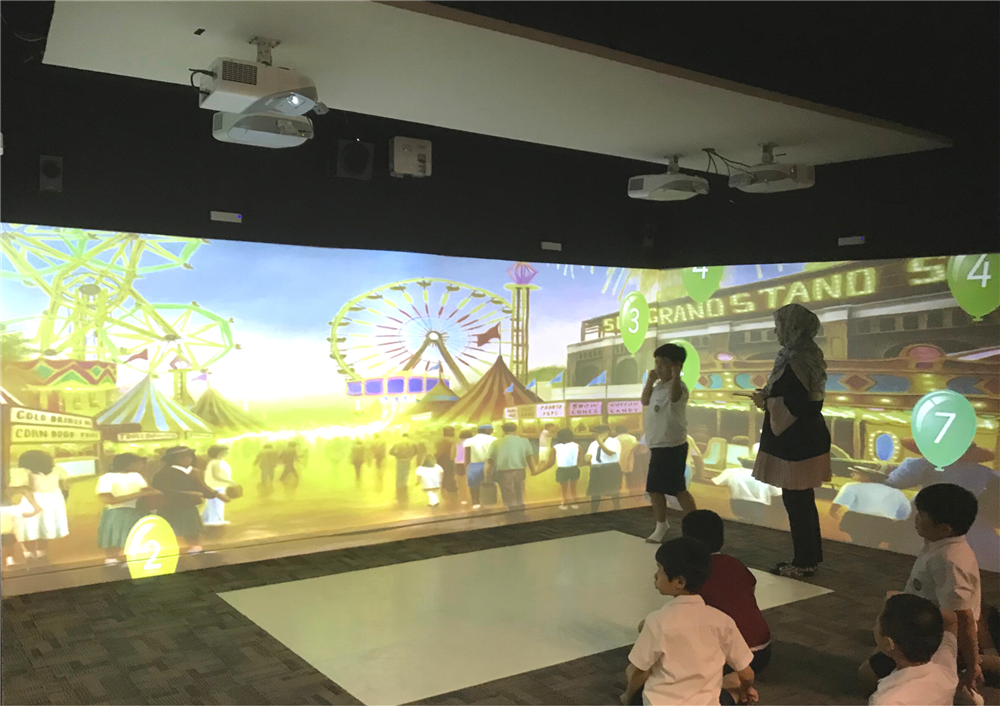Children with disabilities learning with interactive wall and floor projections
- Solution
- Digital Dream
- Organization
- Digital Dream
- Country of Implementation
- Singapore
- Region
- Asia & Pacific
- Subregion
- Southeast Asia
- Start Year
- 2018
- First published
- 10.02.2023

Solution details
“Digital Dream's iCUBE offers a new concept for special needs education that is fun and engaging.” Mr. Alex Tan CK, Managing Director, Digital Dream
Digital Dream is a social enterprise located in Singapore that in 2018 began to provide creative digital solutions for the education of children with disabilities. By using Integrated Immersive Interactive Mixed Reality (IMR), the company digitalizes contents, which can then be projected onto walls or other surfaces. The projection technique allows real life simulations like crossing the street or the projection of cartoon characters to facilitate learning. In 2022, Digital Dream was operating in three adult learning centres, nine schools, and one intervention centre.
Problems Targeted
Children with disabilities often get left out of experiential learning opportunities due to a lack of accessible options and logistical barriers.
Solution, Innovation and Impact
Digital Dream’s iCUBE uses projections on walls and floors to create immersive and interactive environments by adding touch points that can reveal information, making it fun to learn. Teachers with no programming skills can also create lessons not just for school-based work but also for life skills, such as crossing the road. Such simulations provide children with disabilities a first-person experience in a safe environment. The Digital Dream team is comprised of designers, programmers, and developers. Their clients use the technology for various activities, ranging from education and learning to games and quizzes. The company also provides training on its system’s use and how to create original content for interactive activities. Digital Dream also offers iCUBE mobile units, which can be transported easily and allow experiential learning at various locations without the confines of a dedicated fixed physical space. They often come into use for road shows, exhibitions, events, or seasonal programmes. Digital Dream’s initial roll-out was in three schools for children with disabilities in 2018, and it has since expanded to pre-schools and learning centres for adults with disabilities.
Funding, Outlook and Transferability
Basic installations generally range from $25,000 to $100,000, which includes installation of all equipment, 40 curated contents, ten templates, training, and a content development course. By 2025, Digital Dream aims to have five more schools using the immersive mixed reality system and to expand to the Asia-Pacific region. The company is also researching how to add physical interactions into the virtual space, such as handheld devices, tablets, and smartphones.
Media
Related information
- Connections
- 2
-
Organization
- People